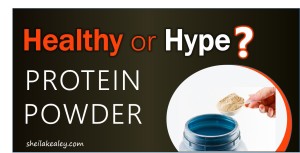 Healthy or Hype? Protein Powder
Healthy or Hype? Protein Powder
The protein powder market is growing. Once primarily the realm of body builders (and sold in big tubs displaying pictures of big muscles), protein powders are now cleverly marketed to various demographics and available at most supermarkets. This wide availability and targeted advertising is prompting many to wonder if they need a protein supplement. This article looks at the evidence. Go to Article>>
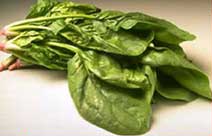 Dietary Nitrates, Sports Performance, and Health
Dietary Nitrates, Sports Performance, and Health
 Athletes Avoiding Gluten and Grains: Is There Good Evidence?
Athletes Avoiding Gluten and Grains: Is There Good Evidence?
The gluten-free trend is a popular one, and many athletes have hopped on the bandwagon thinking it might improve their health, digestion, and athletic performance. Are they onto something, or can you keep enjoying your bread and pasta? Go to Article >>
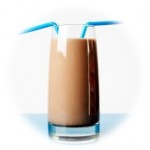 Healthy or Hype? Chocolate Milk for Recovery
Healthy or Hype? Chocolate Milk for Recovery
Will chocolate milk help you recover after your workout? A look at the evidence. Go to Article >>
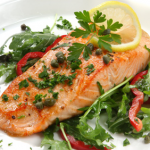 How Much Protein Do You Need?
How Much Protein Do You Need?
Although most people are eating enough protein, many could choose better protein sources and optimize how they distribute their protein intake throughout the day. For example, many people eat too much protein for supper, and too little in the morning. Almost everyone can benefit from including some protein at most meals and snacks to help control blood glucose levels and feel full longer. Athletes are another group who can benefit from better protein distribution, as you’ll see below. Go to Article
What Should I Eat Before I Workout?
 Eating before exercising can be tricky: figuring out how to fuel for workouts in the early morning, lunch breaks, or supper-time takes some planning and practice. But it’s definitely worth finding a plan that works for you, since the food you eat before your workout has many benefits besides curbing hunger: it can help fuel your muscles and brain, top off your glycogen stores, increase motivation, decrease perceived exertion, boost your endurance and performance, and set the stage for faster post-workout recovery. On the other hand, what you eat (or don’t eat!) can also lead to lightheadedness, fatigue, cramping, or gastric distress. Go to Article >>
Eating before exercising can be tricky: figuring out how to fuel for workouts in the early morning, lunch breaks, or supper-time takes some planning and practice. But it’s definitely worth finding a plan that works for you, since the food you eat before your workout has many benefits besides curbing hunger: it can help fuel your muscles and brain, top off your glycogen stores, increase motivation, decrease perceived exertion, boost your endurance and performance, and set the stage for faster post-workout recovery. On the other hand, what you eat (or don’t eat!) can also lead to lightheadedness, fatigue, cramping, or gastric distress. Go to Article >>
Energy Bars: What to Look For, Real Food Alternatives, and How to Make Your Own
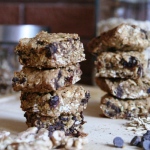 Energy bars are popular with many athletes because they are a quick and convenient source of calories that are easy to eat during workouts or as a handy snack. Although for the most part, real food is often better and preferable nutrition-wise, energy bars can good to have on hand. Traveling, training camps, and races are great times for the convenience of energy bars, since it can be more difficult to have a supply of food close by to refuel your working muscles. Go to Article >>
Energy bars are popular with many athletes because they are a quick and convenient source of calories that are easy to eat during workouts or as a handy snack. Although for the most part, real food is often better and preferable nutrition-wise, energy bars can good to have on hand. Traveling, training camps, and races are great times for the convenience of energy bars, since it can be more difficult to have a supply of food close by to refuel your working muscles. Go to Article >>
The Iron Needs of Athletes: Who Needs More, and How to Get it Through Your Diet
Understandably, athletes are often concerned about iron, because iron is part of hemoglobin in blood and myoglobin in muscles, helping deliver oxygen to cells. Low hemoglobin can result in fatigue and decreased aerobic capacity, leading some athletes to assume that extra iron will enhance performance. Indeed, some endurance athletes take iron supplements regardless of their iron status, even though excess iron might compromise their health. On the other hand, truly iron deficient athletes might not be aware of their status, and changes in their diet or iron supplements might reduce fatigue or improve performance. But dietary changes aren’t straightforward because iron absorption is a complicated phenomenon. Go to Article >>
Will Beet Juice Improve Endurance Performance?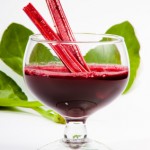
One race morning, I noticed my XC Ottawa teammates Karl and Megan drinking beet juice. I’d read some of the research, but now I was intrigued. Apparently they were tipped off by their friend Dylan Wykes. Dylan, along Reid Coolsaet and Eric Gillis will be representing Canada in the Olympic Marathon in London, and all of them seem to have incorporated beet juice into their nutrition plans. So have some top pro cycling teams. The list goes on. Some experts believe doping control will be dealing with many red-colored urine samples from endurance athletes (more on this later . . . .). It was clearly time to investigate further. Go to Article >>
Refueling for Recovery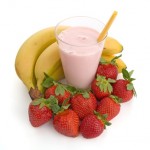
Most athletes realize that proper recovery is critical to athletic success: rest allows your body’s systems to adapt to the stresses of training and hopefully make you stronger and faster. Many athletes are not as aware, however, that you can maximize your training gains, speed up the recovery process, and enhance subsequent performance by consuming the right foods or fluids at the right times following a workout. Go to Article >>
You Fuel your Workouts, but How Does the Rest of your Diet Stack Up?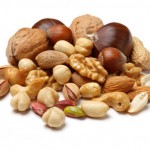
Most athletes know that they should pay attention to choosing the right foods and beverages to help fuel workouts and promote recovery, but when it comes to their overall diet, there seems to be more variability. Improving your diet outside of training can have many benefits. The article provides some tips to help you choose foods that will benefit your overall health. Go to Article >>
Reviewed and updated November 1, 2015
Share This: